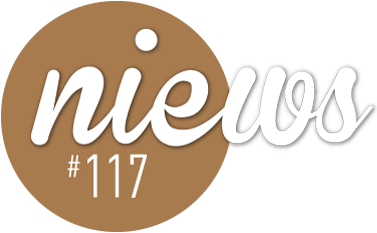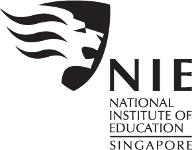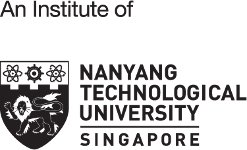
COVID-19 has not deterred the Trainee Teachers’ Club (TTC), now known as NIE Student Teachers’ Club (NST Club), at the NIE, from organising exchange programmes with three overseas universities this year. Through the virtual interactions, our participants got to learn about the culture and educational systems of their host universities: Linkoping University, Griffith University and Hong Kong University. To mark their new friendships, participants from the various partner universities shipped mementos to the homes of their new buddies as part of a gift exchange at the end of the programme. Han Zi Ding, Elizabeth Chin and Emlyn Ee share their reflections with NIEWS.
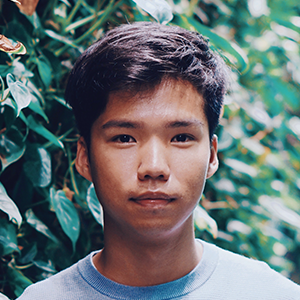
Bachelor of Arts (Education), Year 2 student
NTU-NIE Teaching Scholars Programme (TSP)
Attached to Linkoping University, Sweden
“Hej! That’s Swedish for hello by the way! After how COVID-19 had disrupted my plans for semester exchange, I was ready to immerse myself in the Linkoping programme, even if it had to be accomplished via Zoom. Still, the discussions were lots of fun! It was cool making new friends, interacting with future educators who share similar passions, and learning to appreciate a worldview so different from my own.
I particularly loved the culture and linguistics segment. Learning local phrases, like how to say hello, revealed interesting aspects about Singapore and Sweden's cultures. As it turns out, the Swedes are supremely serious about their Fika culture — it’s what we would call ‘lim kopi’ or hanging out over coffee. Independence is the other huge aspect, as most young adults — like my buddy Alicia — would leave the proverbial nest in their late teens to rent apartments and live by themselves or with their partners. Singaporeans may want to learn more from the Swedes in this regard, notwithstanding our steep rentals!
As someone whose studies, experiences and future profession revolve around empathy, I wanted the opportunity to develop traits like diversity, tact and sensitivity. I achieved this through the virtual exchange which required me to step out of my comfort zone on multiple occasions. For example, it was awkward conversing with the Swedish friends at first, out of fear of committing a faux pas. But I quickly realised that it was fine to ask questions and initiate conversations about our cultural and other differences. After all, diversities are meant to be respected and celebrated, not ignored. Adopting this mentality was rather liberating for me, and I believe it has shown me how to have more open conversations about our differences in society.
I think the value of this virtual exchange depends on how much you’re willing to push yourself in ways that you’ve never done in the past. Given the COVID-19 situation, it’s been heartening to learn about Swedish culture first-hand from the locals. The experience has been enriching and illuminating, even if it wasn’t what I originally envisioned it to be. I would highly recommend such an opportunity if it is available to you!”
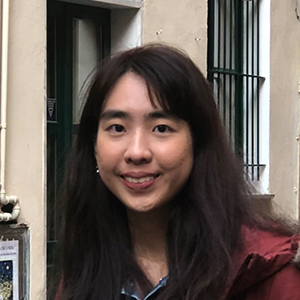
Postgraduate Diploma in Education (PDGE) student
Attached to Griffith University, Australia
“For an hour each week for five weeks, I got to interact with fellow teachers-in-training from Griffith University as part of my online exchange programme. Although I have attended exchange programmes during my undergraduate days, I thought this virtual opportunity allowed me to learn more about education systems around the world while making the best out of the pandemic situation. And so, I went in with an open mind, with little to no expectation, except to make new friends, have fun and learn something from my Australian counterparts.
We broke the ice with our new ‘mates’ Down Under by sharing some of our Singlish phrases. We also learned their local slangs, like ‘brolly’ for umbrella, ‘thongs’ for flip flops and ‘dog’s eye’ for meat pie. I was surprised by the number of universities offering education degrees in Australia. While the grass may seem greener on the other side, no two education systems are the same, given the cultural, historical, political and developmental context of each country. I learned that it is wiser to consider the benefits and limitations of each system in context.
I’m glad we live in today’s highly interconnected world, because there is so much to learn from the teaching community overseas. Through the exchange programme, we’ve been able to cultivate friendships, bounce ideas, and take comfort in the fact that we aren’t alone in this journey of educating young minds. I’ve been able to continue the friendship with my buddies on social media platforms like Facebook, Instagram and Tiktok. And perhaps, when the COVID-19 situation improves, we can finally visit our buddies in Australia, or play host to them should they come to Singapore!”
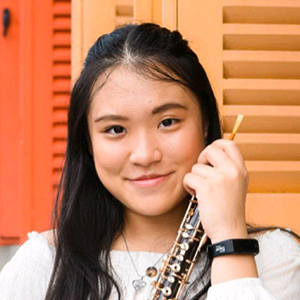
Bachelor of Arts (Education), Year 2 student
NTU-NIE Teaching Scholars Programme (TSP)
Attached to Hong Kong University
“As the virtual exchange was a novel experience, I did not have any prior expectations. However, I wanted to learn more about education in Hong Kong, where the literacy rate hovers around 93%. I figured the experience would be crucial in expanding my horizon regarding education, both at the national and global level.
Thanks to the presentations and professionally organised webinar sessions, I learned something new every week. The first-person perspectives from my peers in Hong Kong provided valuable insights on a range of education topics, including sensitive ones like educational inequalities and special needs education. Listening to their presentations, I found myself sometimes in awe, sometimes in shock. It struck a chord in me to think that we may have to confront similar topics as we enter the teaching community. It helped to listen to personal opinions, as I got to understand differing viewpoints towards education on a deeper level.
The stress level that was common to students in both Singapore’s and Hong Kong’s education systems was one of the things that stood out for me during discussions. As teachers, our mindset and teaching philosophies have an academic and emotional impact on students. This prompted me to think: How will I differentiate my own teaching style to suit various class dynamics and learner profiles? I began to realise that adaptability and adeptness were the keys to success in teaching. While researching for a presentation on ‘curriculum & educational issues’ with my friend Yan Lin, I strengthened my understanding of Singapore’s curriculum goals and the subject-specific pedagogical skills required.
A virtual exchange can be a great learning experience only if you’re open to exploring new mindsets and perspectives, contrasting cultural motivations, and even conflicting educational beliefs. My advice would be to learn as much as possible, gain as much as possible, and reciprocate as much as possible!”

